In this brief space it is impossible to do justice to all the themes developed in this monumental encyclical, whose purpose is to update Paul VI’s encyclical, Populorum Progressio, after more than forty years since its publication, which is considered by the current Pontiff as the Rerum Novarum of the contemporary epoch (n. 8). Therefore, I will abide by its novelty, taking as reference basically paragraph 70 of the encyclical, which is in chapter VI, “The development of peoples and technology.”
Paul VI’s statement that authentic development had to be of “the whole man and of all men” has become became very wellknown. This statement, which Benedict XVI endorses and now explains in the new historical context of the development problem, has two dimensions. The expression “the whole man” refers to the foundation; that is to say, to the truth of man, to his transcendent dimension, spiritual condition, and above all, his vocation for eternity. From this point of view, the encyclical states that “Paul VI taught that progress, in its origin and essence, is first and foremost a vocation” (n. 16), which means, on the one hand, the answer to a transcendent call from the Creator himself, and that, therefore, progress cannot take an ultimate meaning by itself. On the other hand, such an answer requires freedom and responsibility (n. 17). As he has done so many times, this is a clear invitation from the Pope to expand reason and our horizon, also in relation with current social realities. The “all men” expression has as its historical horizon the growing interdependence of the people, which at the end of the sixties was beginning to become evident, and forty years later, continues to be so evident that the Pope calls it an “explosion of worldwide interdependence, commonly known as globalization” (n. 33). Then, the horizon of justice and peace exceeds the boundaries of local political power and national states, to consider this new form of relationship, which affects all the peoples of the earth: “The development of peoples – says the encyclical – depends, above all, on a recognition that the human race is a single family, working together in true communion, not simply a group of subjects who happen to live side by side” (n. 53).
Evidently, this new worldwide scale of the human phenomenon would not be possible without technology. First, the latter was linked to printing and transportation. Now, the communications electronic revolution has allowed worldwide circulation of capital and information of all kinds, and has permitted the virtual presence of people and events in real time, at any place on earth. Such a powerful tool, from which humanity has benefited with abundant fruits in all areas of social activity, is modifying, nevertheless, the very mentality of the people, with the resulting danger that they stop looking for the ultimate meaning of everything. The Pope says: “Technological development can give rise to the idea that technology is self-sufficient when too much attention is given to the ‘how’ questions, and not enough to the many ‘why’ questions underlying human activity. For this reason, technology can appear ambivalent. Produced through human creativity as a tool of personal freedom, technology can be understood as a manifestation of absolute freedom, the freedom that seeks to prescind from the limits inherent in things. The process of globalization could replace ideologies with technology, allowing the latter to become an ideological power that threatens to confine us within an a priori that holds us back from encountering being and truth” (n. 70). The phrase reminds me right away of Nietzsche’s statement in which nihilism is that situation that lacks finality and the answer to the why question. Now, it seems not only to lack the answer, but also the very question. Nietzsche appealed to the dissatisfaction of the answers offered by metaphysics in connection with human destiny, thinking that it placed values in a sphere in which human beings could not reach. Now, instead, it seems that technology brings values more accessible to a great number of people. However, such values do not refer to the “why,” but only to the “how,” with the risk of finding answers only to the question for efficiency and utility. Therefore, the Pope states that the substitution of ideologies for technique transforms itself into an ideological power, exceeding its instrumental condition until it becomes a judgment criterion and an offer of a sort of pseudo finality. Unfortunately, it is not about an eventual danger, but of a situation that we can daily verify in politics, economics, social media, and even in the very cultural phenomenon’s, as it testifies to the widespread “new age.” But the field that certainly becomes more burdensome than any other is the biotechnological manipulation of human life itself, depriving it of its received gift character to transform it into a product ordered to the corresponding industry.
Therefore, the encyclical wants to offer a judicious and different judgment criterion, which allows an exit from the confinement of the technological a priori towards the truth of being. For this, it is necessary to restore the question of finality. The text continues: “When the sole criterion of truth is efficiency and utility, development is automatically denied. True development does not consist primarily in ‘doing.’ The key to development is a mind capable of thinking in technological terms and grasping the fully human meaning of human activities, within the context of the holistic meaning of the individual’s being” (n.70). This horizon of meaning is the one proposed from the key textual interpretation which represents the observation of all social events with the eyes of “charity in truth.” Christian anthropology usually summarizes it in the formula “being made for gift,” since all intelligence and human freedom is played in the answer that people want to give to the gift of life received and accepted as a gift. From this horizon, technology is discovered in its humanity. The encyclical says: “Technology –it is worth emphasizing– is a profoundly human reality, linked to the autonomy and freedom of man. In technology we express and confirm the hegemony of the spirit over matter” (n. 69). And appealing to the teachings of John Paul II on human work it continues: “It touches the heart of vocation for human labor: in technology, seen as the product of his genius, man recognizes himself and forges his own humanity. Technology is the objective side of human action whose origin and raison d’être is found in the subjective element: the worker himself. For this reason, technology is never merely technology. It reveals man and his aspirations towards development, it expresses the inner tension that impels him gradually to overcome material limitations. Technology, in this sense, is a response to God’s command to till and to keep the land (cf. Gen 2:15) that he has entrusted to humanity, and it must serve to reinforce the covenant between human beings and the environment, a covenant that should mirror God’s creative love” (n.69).
This priority that puts the magisterium in the subjective dimension of human work on its objective dimension is what leads intelligence to discover development as a vocation and a response to the original exhortation of God’s creative love that puts the human being on his path towards his destiny. As Heidegger explains very well, technology is a way of approximation to reality that considers the latter as magnitude; that is to say, as something capable of being measured and compared in its quantity. But this is a capacity which human intelligence is able to discover, and which cannot be applied to the spiritual life, which exceeds all magnitude when it comprehends selfless love and life itself. From technology itself comes the name of “chance,” a word beyond technology which expresses the confession of perplexity, of not knowing the cause or origin of the considered reality. For the very spirit of intelligence, chance cannot exist, since the very act of comprehension, including the expression “chance,” is preceded or anticipated by the initial exhortation which provokes in intelligence the act of asking and which puts the latter on the road of thought. Therefore, intelligence that seeks truth is open to charity which by its own nature is excessive and overabundant of the gift.
From the action’s point of view, the freedom which arises and comprehends itself from this human tendency toward gift, is not indeterminism or indifference, but the search for the responsibility of one’s own acts, and the rest of humanity with whom we remain related, to lead them to the path which carries out vocation. Therefore, the Pope states that “human freedom is authentic only when it responds to the fascination of technology with decisions that are the fruit of moral responsibility. Hence, the pressing need for formation in an ethically responsible use of technology. Moving beyond the fascination that technology exerts, we must reappropriate the true meaning of freedom, which is not an intoxication with total autonomy, but a response to the call of being, beginning with our own personal being” (n.70). In this sense, one understands the responsibility that human beings have for the realization of common good, which is not a generic general good for all men, but that good which relationally shared allows for the reciprocal realization of vocation. We Christians know that this human vocation which is carried out in goodness, truth, and beauty is called holiness. But even those who have not received the gift of faith will be able to understand that the goods one is expecting can only be a result of the moral responsibility assumed in the communion that comes from a shared culture.
I think that many people could understand the message of this encyclical as an answer to the economic and financial crisis experienced by the world in the last two years. You will find numerous passages of this pontifical text that are enlightening in this respect. But the challenges that the Pope identifies at this time of global emergency in society, a worldwide interdependence as he calls it, is much deeper and of broader scope. While Paul VI and John Paul II had been able to still identify, in their respective epochs, the anthropological errors that were nestled in the ideologies that sought the legitimation of different ways of power; Benedict XVI’s new encyclical identifies technology instead with the pretension of human self-sufficiency or with technology itself turned into an “ideological power.” Thereby, the interlocutor of the pontifical discourse is not only the powers of the state and its governments, but all human beings that use technology to produce and rule the daily rhythm of their work and decision making. The traditional distinction between the public and private sphere is today equally crossed by technology: from economy to health, from sports to formal education, from family to procreation, from mass media to politics. In all these areas and many others, technology embodies this new form of self‑sufficiency which disorients human beings from their purpose, and consequently, from where they can put their hope confidently. The magisterium of this Pope seems to indicate to us that the only thing that can counteract this technology’s unilateral vision of the orientation of the human process and its development is the intelligence that arises from the three theological virtues; since its recognition opens reason to grace, to that which transcends human life, because they do not correspond to the design of a product of human work, but to divine grace which is received with the freedom and responsibility that should correspond to the reception of a gratuitous gift. The invitation, accordingly, is to pass from the “how” questions to the “why” questions, so that they will be a response to the infinite longings of those created in the image and likeness of their Creator, a response which is the only one that can guarantee a social coexistence in justice and peace.



